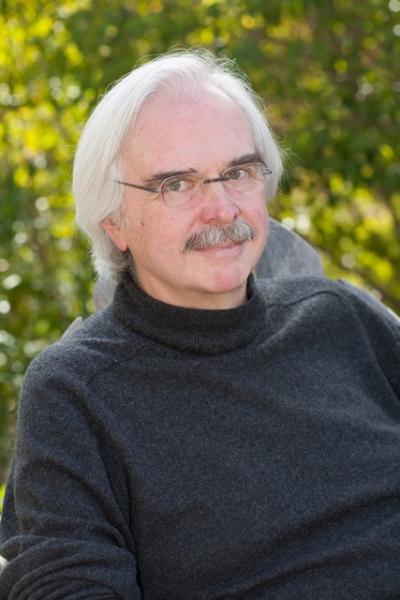“Finding the Note,” by Robert Thomas (Poetry ’02)
Poetry alum Robert Thomas was recently featured in the DMQ Review. Read an excerpt of Thomas’s essay, “Finding the Note,” below:

Finding the Note
If you want to be an artist, is it condemning yourself to mediocrity even to think about craft? That’s the question that came to mind when I was asked to write something about craft. Craft is what those academic MFA types worry about, not real artists, isn’t it? As Allen Ginsberg famously said, “First thought, best thought.” But we can see this romantic thought embraced long before the Beats. One of the most damning remarks ever made about craft was in a letter by Keats: “If Poetry comes not as naturally as the leaves to a tree, it had better not come at all.”
Nevertheless, we may be grateful that Keats revised “The Eve of St. Agnes” so that instead of the embarrassment of watching Madeline “unclasp her bosom jewels” and “loosen her bursting bodice” (yes, that was Keats’ first draft!), she “unclasps her warmèd jewels” and “loosens her fragrant bodice”—changes that enhance not only the sensuality but the precision of the images, even if the bursting bodice came as naturally to Keats as leaves to a tree.
*
In 1997 Dustin Hoffman received the Golden Globe lifetime achievement award, and in his acceptance speech he talked about an artist’s craft:
I remember being in a hotel room in 1967 in San Francisco one night and I’m flipping the TV dials after doing all this promoting all day long, and there is this little old Jewish guy with a bald head sitting at a piano in his living room and he’s being interviewed. And I suddenly realize I’m looking at Igor Stravinsky, the great Russian-American composer.
The interviewer is saying to him, “So Mr. Stravinsky, what is the greatest moment for you? Is it when you finally write your symphony?” And Stravinsky says, “No, No, No.” He sounds like a New York cab driver. “Is it when you’ve heard it played the first time by a symphony?” And he says, “No, no, no.” “What about opening night when they premier it and herald it as being one of the great works of the 20th century?” And he says, “No, no, no.” “So what is the greatest moment for you?”
He’s there sitting at the piano with some music on the thing there and he says, “I’m sitting here at the piano all day long, and for three, four hours I’m trying to find a note. I can’t find the note, and I’m going bum bum … bum Bum … bum BUM for three hours. Finally after three hours I find that note. Bum bum! That’s the moment. There is nothing like it. That’s everything.” So I started crying ….
That’s a perfect description of craft in the service of art. The art, after all, is in knowing which note is the note. But it must be done without becoming too obsessive. I once had a fantasy that if only my brain was a computer that could scan the entire Oxford English Dictionary in a fraction of a second, then writing would simply be a matter of picking out the perfect word to follow the last word, then picking out the perfect word to follow that one (perhaps Keats’ warmèd jewels).
Read the essay in its entirety here: https://www.dmqreview.com/robertthomas-spring21



